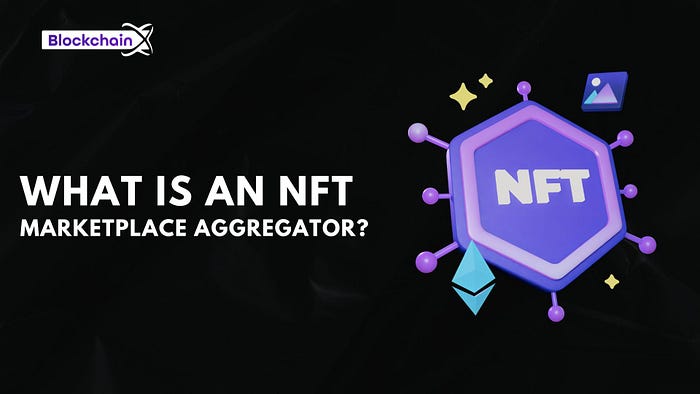views
What is an NFT marketplace aggregator?
The NFT aggregator is an application tool that integrates the pending order information of multiple NFT distribution platforms. Its appearance is to solve the user’s needs that the pending order information of multiple markets cannot be shared and circulated. After the arrival of Web3, aggregator applications that have emerged in different fields have focused on mining, DeFi, and NFT. Aggregators can not only help users explore more in the market and obtain more corresponding value benefits, but also gradually become an integral part of the entire encryption ecosystem.
Summary
The NFT aggregator is an application tool that integrates the pending order information of multiple NFT Marketplace platforms. Its appearance is to solve the user’s needs that the pending order information of multiple markets cannot be shared and circulated. Aggregators traditionally predate the crypto industry by a long time. In terms of summarizing and compiling effective information, the application based on the aggregator principle has long played its role.
The so-called aggregation can be represented by various types of applications that appeared in the Web2 era, such as search engine aggregation and optimization of website content, social platform aggregation and meeting people’s social needs, etc.
After the arrival of Web3, aggregator applications emerging in different fields have focused on mining, DeFi, and NFT. Aggregators can not only help users explore more in the market and obtain more corresponding value benefits, but also gradually become an integral part of the entire encryption ecosystem.
Application direction of NFT aggregator
NFT aggregators are now mainly used for different NFT market information. Since it is more of a Web3 application tool, the functions provided by different NFT aggregators are also different. The basic function of the aggregator is to provide a summary of NFT market information, especially pending order information for all NFTs.
The market information of NFT is actually very simple. For example, platforms such as OpenSea, Rarible, and Larva Labs that focus on NFT transactions have real-time transaction floor price information for different series of NFTs.
With the help of aggregators, users can intuitively understand the market information about NFT Marketplace Development on different trading platforms. The speed of this process depends on the information collection speed of the aggregator tools, which is also the most basic function provided by most aggregators.
Of course, it is the goal of many aggregator developers to try to cover and analyze the pending order information of more different NFT trading platforms, so as to attract more users to use the product. Added many extra features.

The Convenience of Using an NFT Aggregator
The greatest degree of information integration — summarize all viewable, tradable and purchasable NFTs in the market for users.
Quickly improve search efficiency — users can quickly find relevant information about a certain series of NFT on all NFT trading platforms through the aggregator.
NFT information analysis — users can find the information analysis content they need on the same aggregator, they can find information such as total sales volume, floor price, high position holders, etc.
Optimize the NFT transaction link — users can directly conduct NFT transactions through the pages provided by the aggregator, and can spend less gas fee for batch transactions. Many aggregators also support multiple cryptocurrencies for payment, which provides users with great benefits transaction convenience.
The NFT aggregator integrates information from different NFT trading markets into one application for presentation, which optimizes the user’s purchasing experience well. Without using an aggregator, users must individually visit each NFT exchange and register to view each exchange’s respective NFT. This is not only unfriendly to enthusiasts who want to get started in the NFT world, but also to analysts in the NFT field.
Today, the aggregated transaction of NFT has provided great convenience and more expansion functions for different users. In this regard, it has quite positive significance.
popular NFT aggregators
NFT aggregators, which many users are familiar with or commonly used, now provide more specific product-based services in the role of project parties. In this regard, the functional focus of different aggregators is slightly different, but the most basic function is naturally the aggregation of NFT pending order information.
In order to increase the competitiveness of their own applications in the market, in addition to compiling and optimizing NFT-related transaction information, batch purchases to reduce the gas fee ratio have also become one of their key points to attract users.
However, for many users who are committed to investing in the NFT market, the biggest role played by NFT aggregators is to make it easier to keep an eye on the market. Market trends and dynamics are often reflected through the fluctuation of certain NFT prices, and the convenience and advantages that aggregators can provide at such moments are often very strong.
Summarize
There is no doubt that the emergence of NFT market aggregators has provided convenience for many users participating in NFT transactions. Although the functions they contain may not be exactly the same in terms of applications, they are all for increasing the frequency of use.
NFT liquidity integration and transaction aggregation have been a major problem that has plagued investors and users in recent years. The emergence of NFT market aggregators has made up for this shortcoming. The logic and cases in this regard can be answered from many application developments in the Web2 era.
As aggregators have increasingly become an important part of the NFT field, mainstream NFT trading markets are also following up on the construction of applications in this area. For example, OpenSea Ventures, the venture capital arm of OpenSea, will also invest in NFT aggregators and data analysis platforms that support OpenSea and other NFT market platforms.












Comments
0 comment